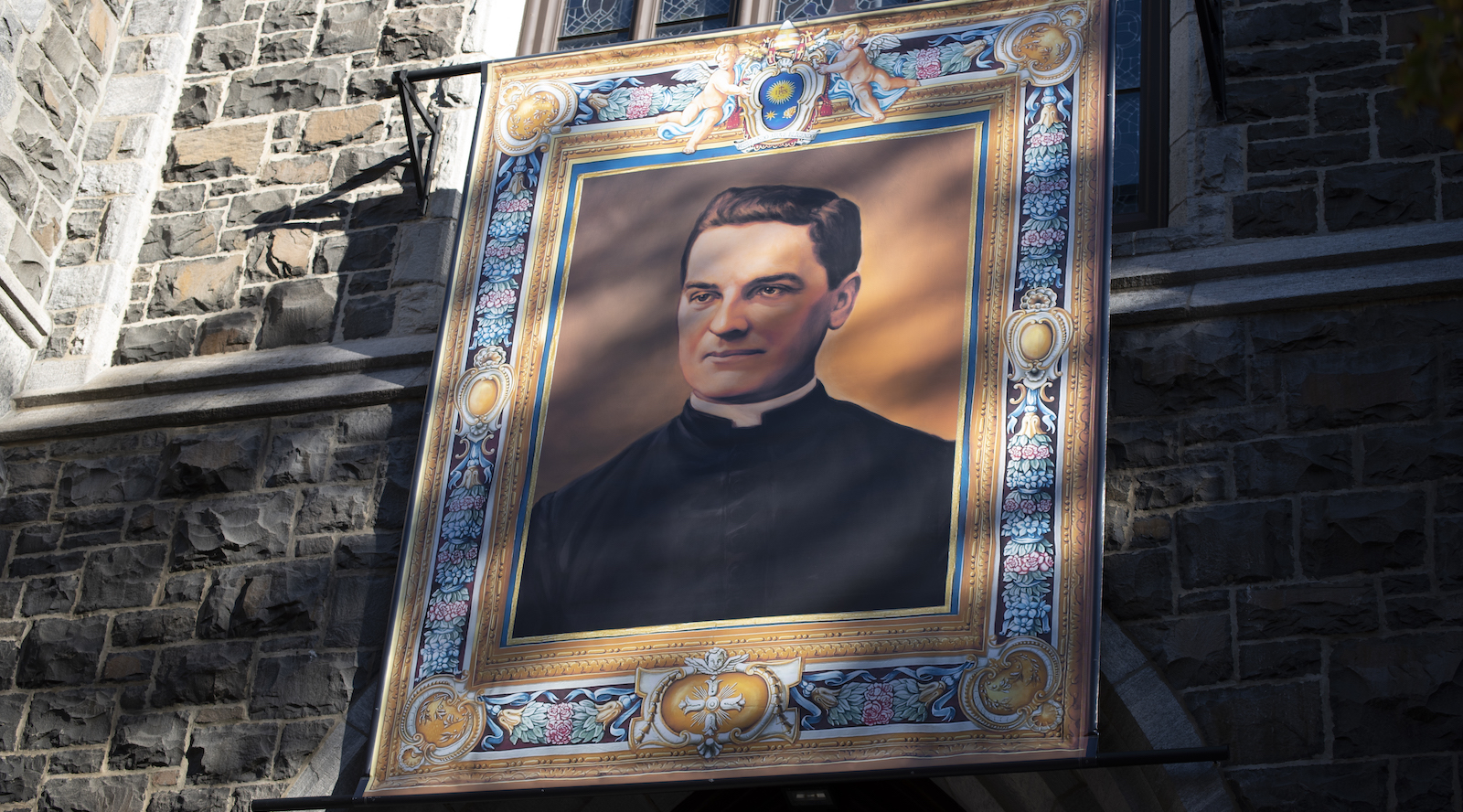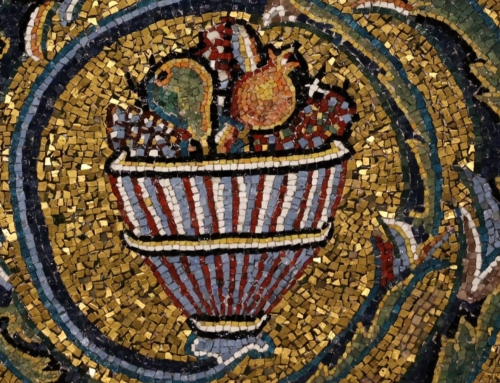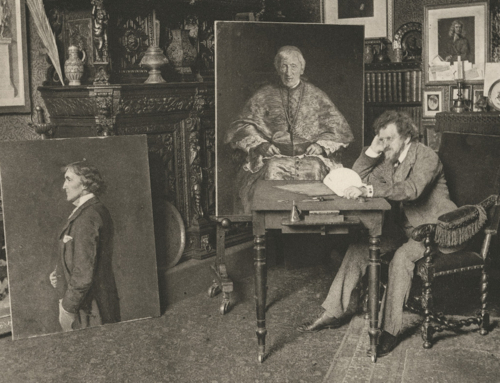New Haven is a city that looks out of place. Leaving the villages of rambling saltbox homes, the towns of clapboard facades,brick chimneys, and unmended field-stone walls, there arises a city on the Connecticut coast that could be Cologne, or Salamanca, or Oxford. Tall, grand columns lining stately, classical buildings. Marble-faced, mausoleum-like temples on every corner. Gothic towers crowning the skyline. Richardsonian Romanesque. Scottish Baronial. Every manner of lavish architecture. Inspired by Yale, politics, generations of wealth, and intellectual heritage, there is an air of something much older than a seventeenth-century city, an air of medieval fantasy to it. King Arthur could have lived here.
And on the grandest, quietest avenue of this otherworldly, medieval city, there stands Saint Mary’s Church. Inside that church lies the body of a man just as otherworldly, just as medieval: Father Michael McGivney.
Michael Joseph McGivney, beatified by Pope Francis in 2020, called New Haven his home for the first seven years of his priesthood. Born in Waterbury, Connecticut in 1852 to Irish immigrants, McGivney desired the priesthood from a young age. After overcoming several barriers—familial, intellectual, financial—he was ordained a priest for the Diocese of Hartford in 1877 and assigned to St. Mary’s Church in New Haven. He was there for seven years. In 1884, he was moved to a country parish in Thomaston, where he pastored that flock for another six years. In 1890, he succumbed to pneumonia, and died at the age of 38 on the eve of the Assumption, 134 years ago tomorrow.
If you know anything about Fr. Michael McGivney, it is that he founded the Knights of Columbus, when he gathered a number of the men of his parish for a meeting to discuss what could be done to help fatherless families. The preeminent Catholic fraternal organization of this country was born. One hundred forty-plus years of fish fries, coat drives, and honor guards have resulted. But 134 years after Fr. McGivney’s death, it can become obscured what made the young curate so special, and so holy.
He was a man of his time, yet a man of timeless qualities. Like the courageous knight in the novels that captivated nineteenth-century readers, McGivney was strong and brave, humble and God-fearing, and up to any task. But the men he saw around him in his parish were less Arthurian than the surroundings of their city, more like fools than knights. And their families, not to mention the reputation of Catholics, were paying the price. What they needed was inspiration. Lancelot, Tristan, and Galahad never had to contend with things like late rent payments, religious persecution, and the threat of alcoholism or tuberculosis. McGivney’s men did, and they faced these hardships daily. They needed a strong priest.
So Michael McGivney gave them a priest. He was grounded in his consecration and in the knowledge of his duty. He made the words of Paul his own: “I will most gladly spend and be utterly spent for your sakes” (2 Cor 12:15). Indeed, as a young priest, barely a year out of seminary, he was already running St. Mary’s, for her pastor was perennially ill. He had to interface with the Protestant establishment of New Haven. He had parish picnics. Total Abstinence League meetings. The school. The utilities. The numerous confraternities and sodalities vying for his fatherly presence. Not to mention the numerous masses and confessions. But, like a good priest, each soul in his flock was precious to him and worthy of all his energy.
In inspiring the men around him to be like knights of old—Catholic men grounded in their faith, family, and country—McGivney was simple. Great men are rarely complicated, but rather uniquely simple. He did nothing more than show them the way to their true home: not the Round Table, but the Church; the way to their true king: not Arthur, but Jesus Christ.
He was a friend to all. He was a ton of fun. He was a patriot. He was a good priest, and his knights continue to look to him for guidance and support—now, by God’s grace, at the altar.
Blessed Michael McGivney, pray for us.
✠
Image: Michael McGivney Beatification Banner (Dominican Friars Foundation)







